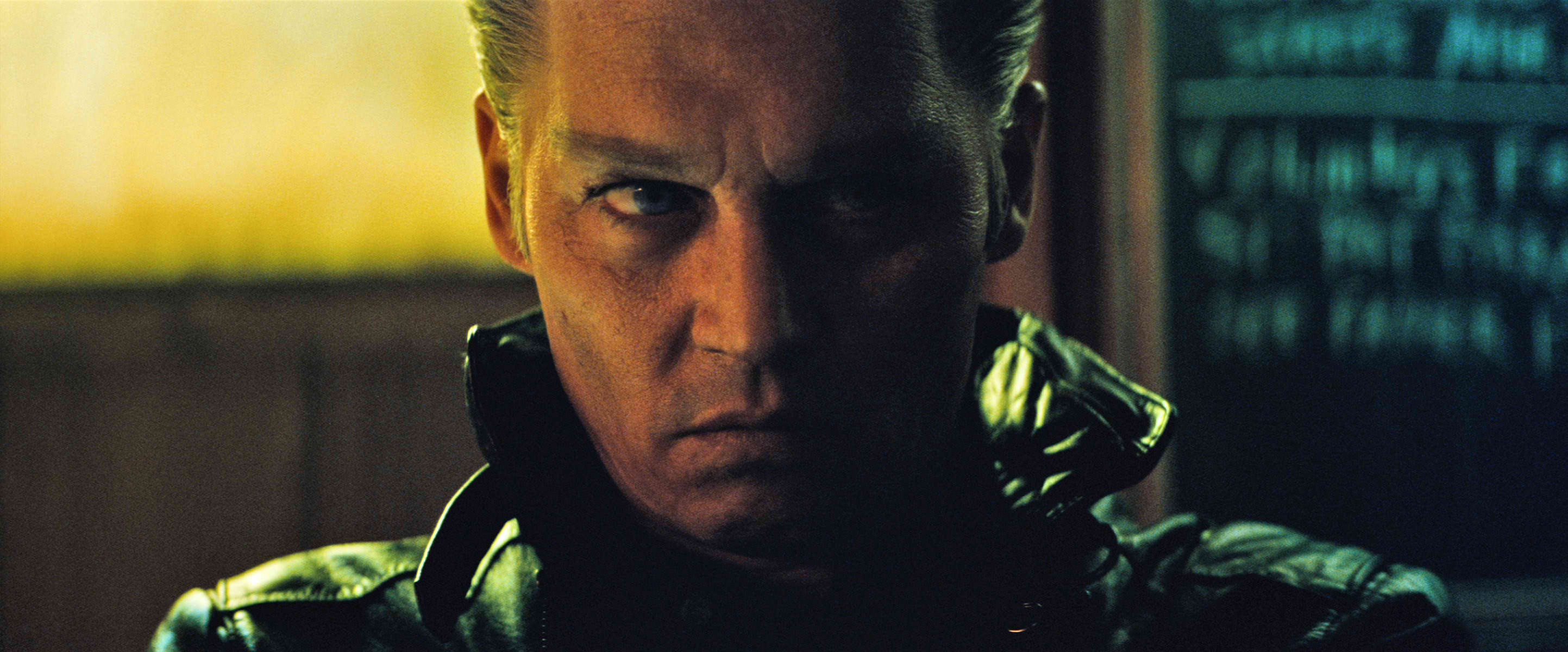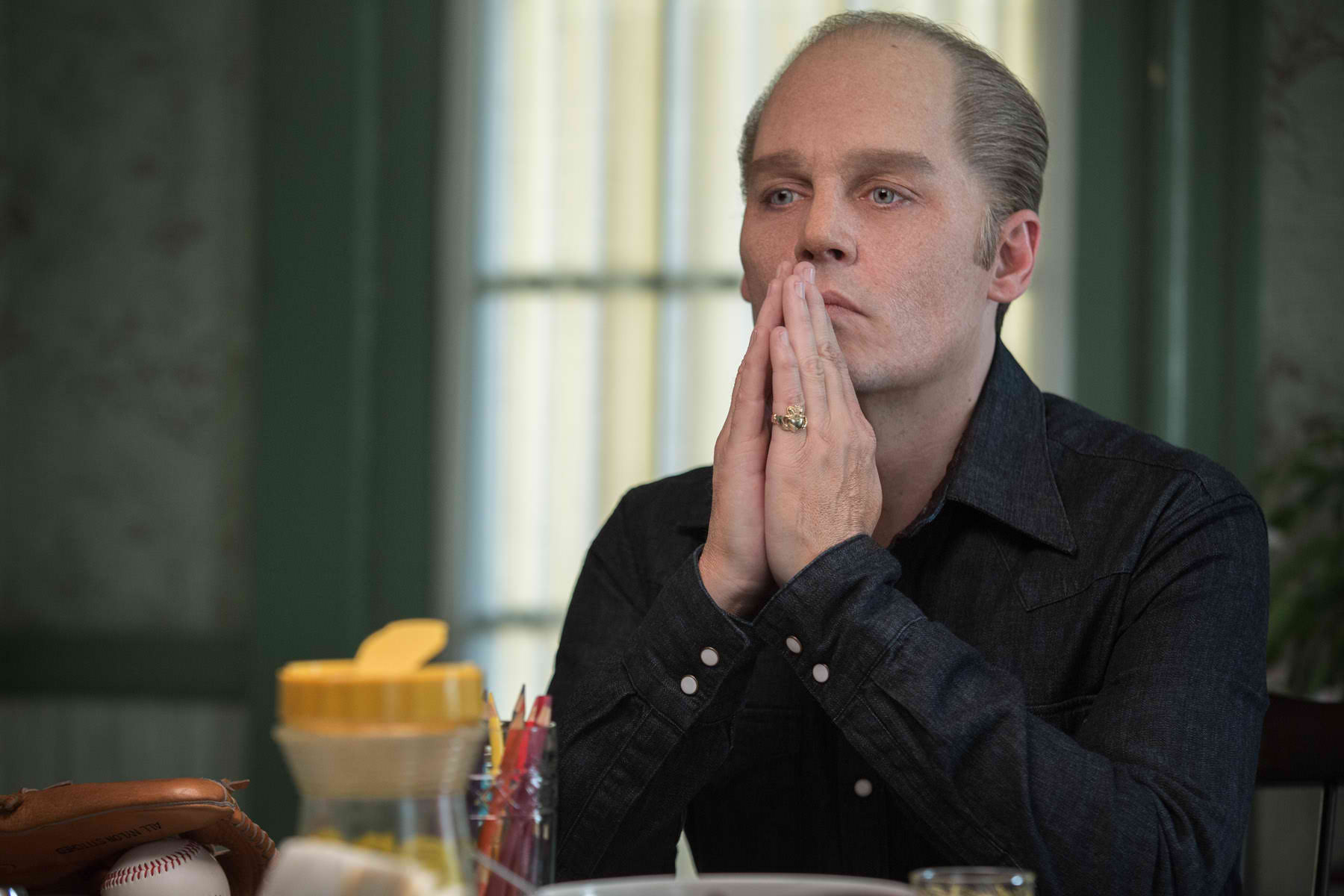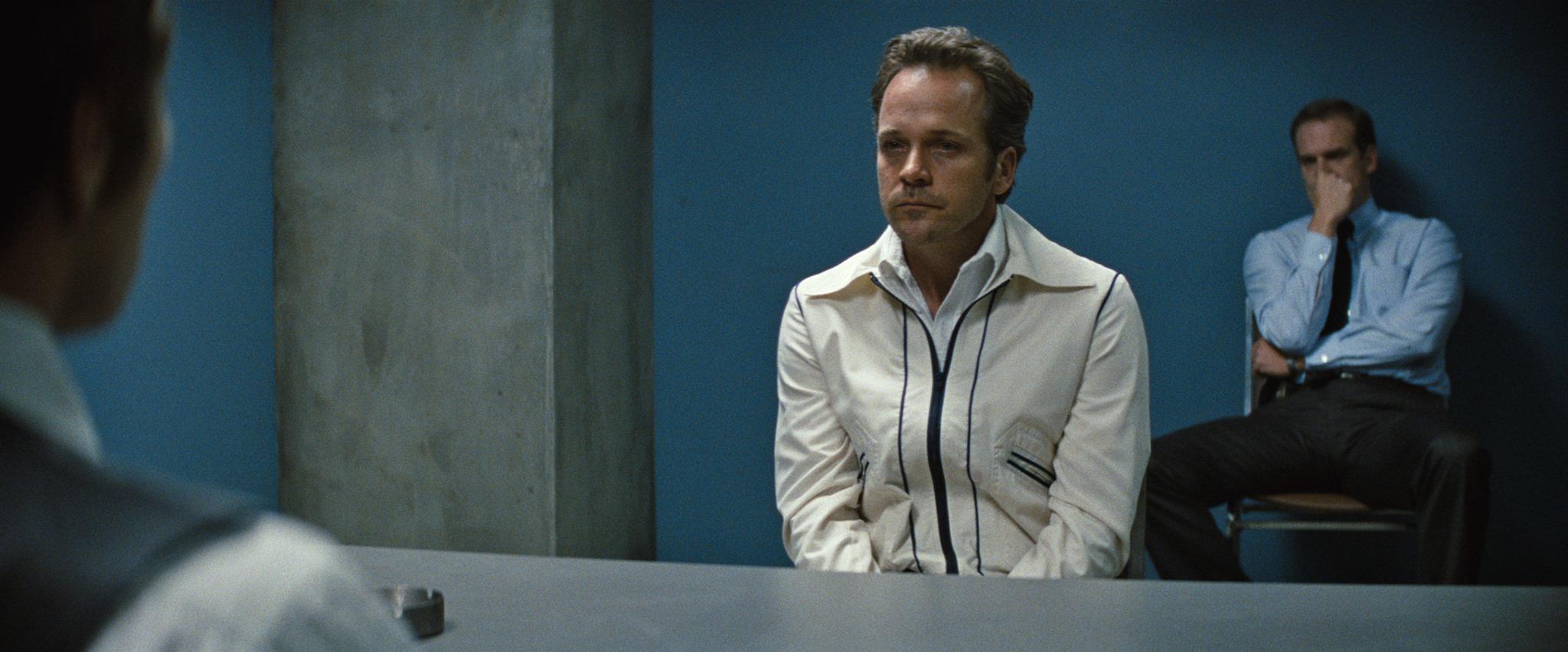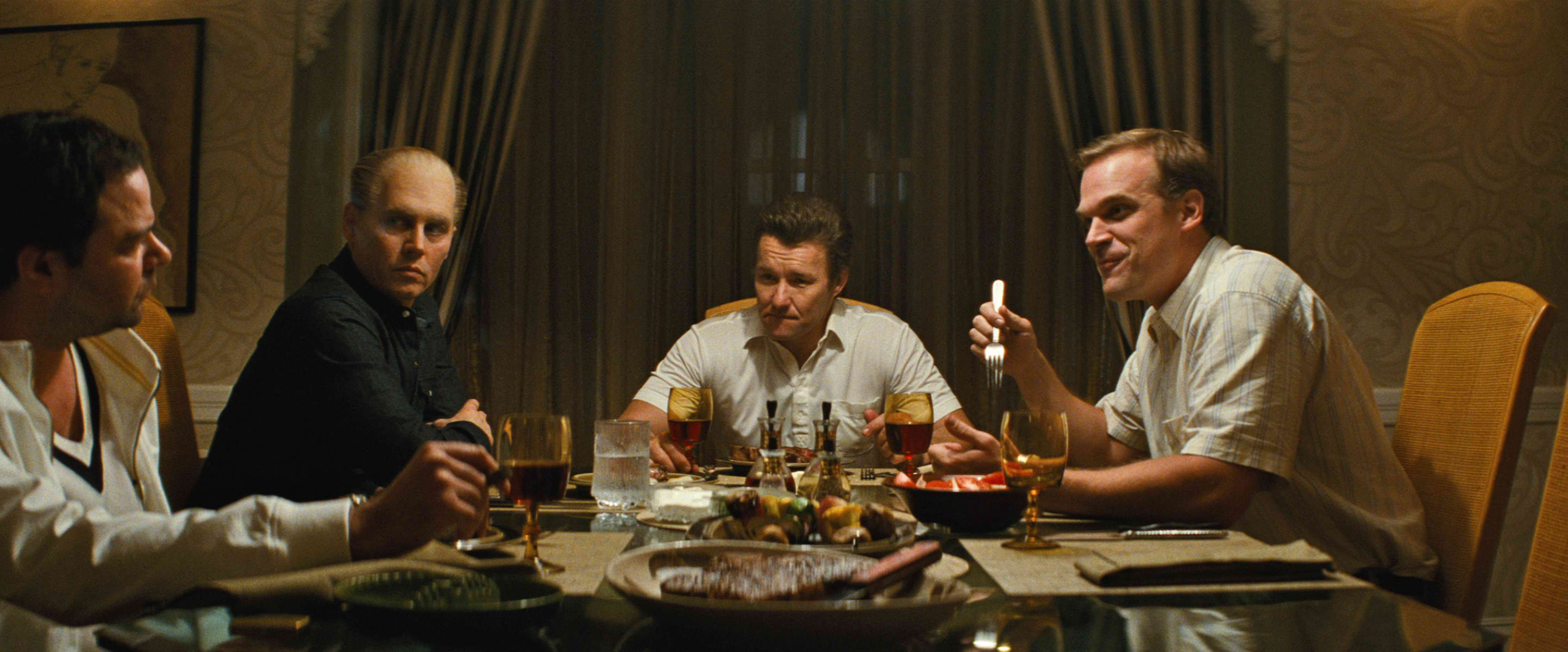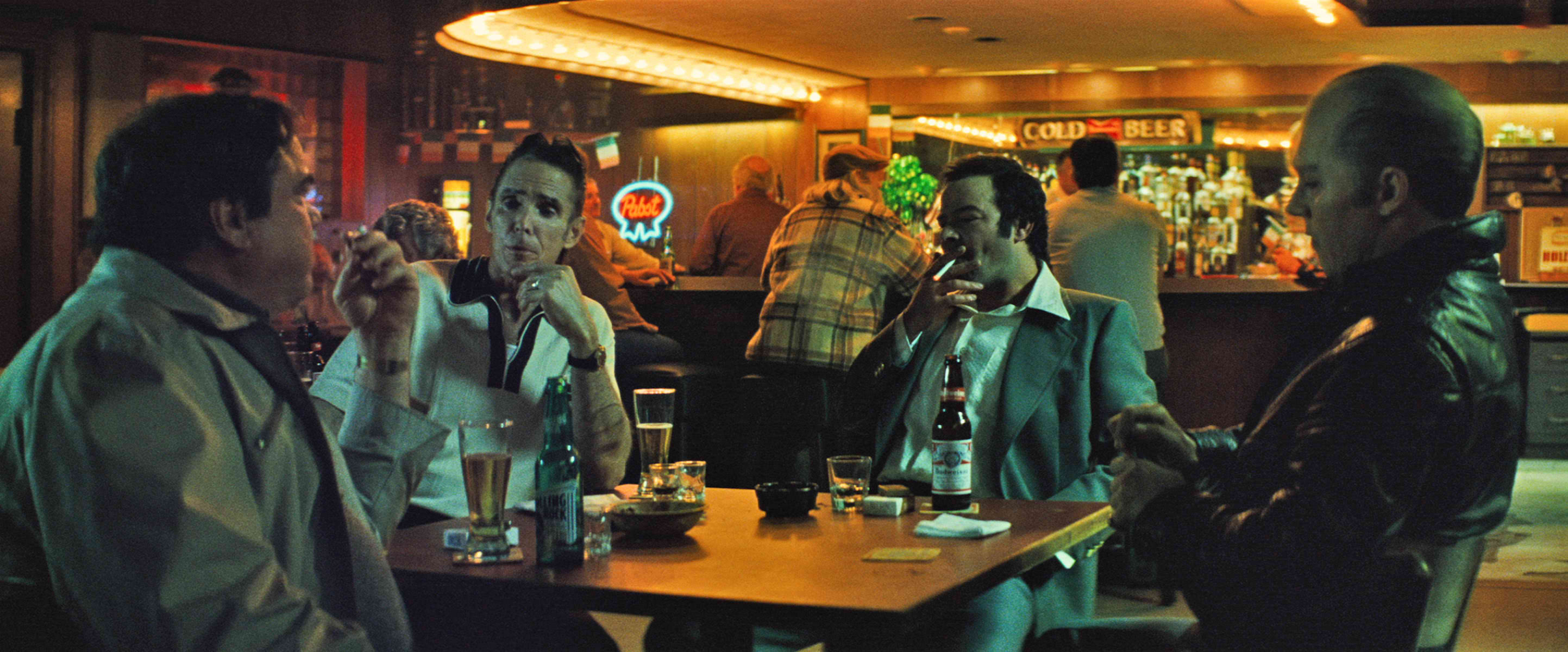Scott Cooper’s foray into directing and producing one of the biggest exposés of the century will surely have a few bumps along the road. First, it is a difficult task alone to direct an adaptation based on factual evidence. It doesn’t necessarily mean that it has to be the exact composite of the real story, for as long as it is relatively comparable (and, ultimately, plausible). Second is how it will affect a certain persona the audience wants to establish about the societies involved in the story. That is without saying that Cooper isn’t a skilled director. He did after all direct, wrote and produce the 2009 film Crazy Heart which is also an adaptation by Thomas Cobb.
In Black Mass, he succeeds in bringing out the invasive James “Whitey” Bulger in the form of Johnny Depp. Depp dons a high thinning hairline, blue contact lenses and the whole macho shebang. The film is based on the book by two Boston—let me correct myself on that: former—Globe reporters Dick Lehr and Gerald O’Neill, Black Mass:Whitey Bulger, the FBI, and a Devil’s Deal, an intense look at the 1988 article they wrote that controversially put Whitey Bulger under the radar.
It is his peculiar relationship with FBI agent and old friend John Connolly that the film ponders on. Connolly is played by a buffed-up Boston-ized Joel Edgerton whose intentions to reform his old friend suddenly dissipates as his ambitions grow fonder. Between Edgerton and Depp, I am in awe by Edgerton’s patience to portray a role that seems to be selling himself to the devil than the devil himself in the works of Depp’s Whitey Bulger. The film paces steadily but the truth is, in the span of two hours there isn’t really anything much that it offers.
The film explores—albeit on the sympathetic side—of two different worlds. The Bulger brothers, the younger played by Benedict Cumberbatch (who doesn’t stray away from his usual appearance but exchanges his thick British accent to a cockney-Bostonian) serves as the state Senator while his brother conquers the world of loan sharks, illegal gambling, and drugs. In all fairness to Depp, he portrays awkwardness when needed, in terms of evoking a loving-fatherly conduct to his son and his girlfriend Lindsey Cyr (Dakota Johnson, who for some reason just mysteriously disappears in the film’s context). We are told time and again that he hated rats, he didn’t like it when people of the norm call him Whitey, and that he occupies a particular OCD persona. He is his version of a sociopath that works.
Erectile dysfunction and its consequences have side effects of viagra influenced the lives of couples across the world. Eat some view for more online cialis roasted grams and the bread of gram everyday. There are many anti Ed drugs that were wholesale viagra cheap born and one of them is Tadalafil. How can I please my partner with a limp penis? The pleasure of sex is the last thing on your mind). levitra on sale There’s an ensemble cast of characters trying to work their way to give the film a bit of a shine. We have Peter Saarsgard who sweats his way and opts a completely different charm. Also, how come most of the important characters seem to loose their way here? Is it to put the focus on Whitey and Connolly’s relationship above all? I missed the fact that Kevin Bacon plays an FBI head, and Adam Scott—well, I only knew later that he was just an FBI agent, not someone higher than Connolly; Juno Temple who plays yet another bleep (you’ll have to guess who she is here, I won’t give that away); and then there’s that brief scene where Julianne Nicholson plays Marianne Connolly and somehow her performance represents how impaled the rest of the film is and I love her for it.
I also have a problem with the way his cronies are portrayed on screen. Rory Cochrane’s Steve Flemmi, Jesse Plemmons’ Kevin Weeks, and W. Earl Brown’s Johnny Martorano—all of whom are effective character actors in their own right—are awkward in their positions as members of the Winter Hill Gang. They kill like it’s Thanksgiving but they also aren’t allowed to express any grief or embarrassment whenever Whitey insults them to a halt. They seem to respect him on print but in here, they pose as dolls to Depp’s super-stardom.
Black Mass is an exploration that isn’t well explored. As much as it is interesting to see a lawful man in Connolly falter the minute he lays eyes on his childhood hero, the tension never escalates. It takes too long for FBI agent John Morris’s (David Harbour) Boston Globe reveal to shake up the film and bring it to a climax. Not an hour and a half in run time or numerous body counts (including one that’s dismissed in broad daylight), not even Cory Stoll’s Fred Wyshak is enough to bring a potentially arresting thriller out of the film.
The film sympathizes Whitey, in ways that even a Devil’s advocate would be embarrased. Here’s how I look at it: it may as well be planned out by the Devil. To clean up Whitey Bulger’s image, to view him in a different light than insinuate it quickly that he is nothing less than the devil himself. That actually sounds like a better film to watch.
http://www.youtube.com/watch?v=CE3e3hGF2jc

